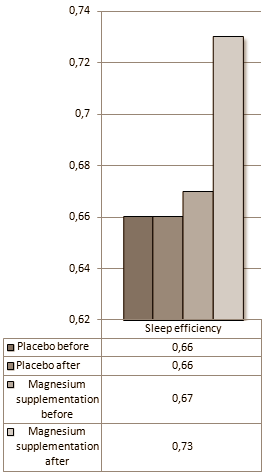|
Dirt-cheap magnesium supplement improves sleep
The cheapest magnesium supplements contain magnesium oxide, which the body does not absorb well. They cost next to nothing at a drugstore, yet they can improve the quality of your sleep – and they don't cause side effects. Researchers at Shahid Beheshti University of Medical Sciences in Teheran, Iran discovered this when they did an experiment on insomniac over-60s.
Sleep
Sleep is an important factor in our health, but the older you get the more the quality of sleep declines. This might be, the Iranians write in the Journal of Research in Medical Sciences, because the amount of magnesium available to the body decreases with age. This is a result of osteoporosis – bones are the main store of magnesium in the human body – but also because the body's uptake of magnesium declines.
Study
If this theory holds water, then over-60s with a sleep problem could benefit from magnesium supplementation. So the Iranian researchers gave two dozen subjects, average age 65, who complained of sleeplessness, two pills containing 250 mg magnesium in the form of magnesium oxide twice a day for eight weeks. An equal-sized control group took a placebo.
The subjects' diet provided less than the amount of magnesium recommended by nutritionists. This is normal in countries where modern food industry determines food consumption. Foods containing magnesium include wholegrain products, nuts, fruit, dark chocolate, leafy green vegetables such as spinach, soya, dairy products and meat, and foods that have not been highly processed.
Results
Supplementation resulted in the subjects lying awake for less time [their sleep time was half an hour longer], and they also fell asleep a little faster [their sleep onset latency was 12 minutes shorter].

Magnesium supplementation improved the subjects' Sleep efficiency. In addition, the subjects that had been given magnesium complained less of sleeplessness after eight weeks. Their Insomnia severity index was lower.
More magnesium?
So while magnesium supplements didn't solve the subjects' sleeplessness, they did help reduce the problem.
If the researchers had given their subjects magnesium for a longer period of time, or used higher doses, or given them a more easily absorbable form of magnesium, they might have obtained better results. The table below suggests this. It shows that the magnesium level rose by a meagre 4 percent in the subjects that had received magnesium.

So what would have been the effect on sleep quality if the magnesium level had risen not by 4, but by 8 percent? Or by 12 percent? Or...
Source:
J Res Med Sci. 2012 Dec;17(12):1161-9.
More:
Do you sleep badly in the summer? Maybe ornithine can help 04.09.2013
Eat two kiwis for a good night's rest 22.02.2013
Improve your sleep with glycine, and your memory will work better too 18.02.2013
Archives:
Magnesium
Sleep
|








